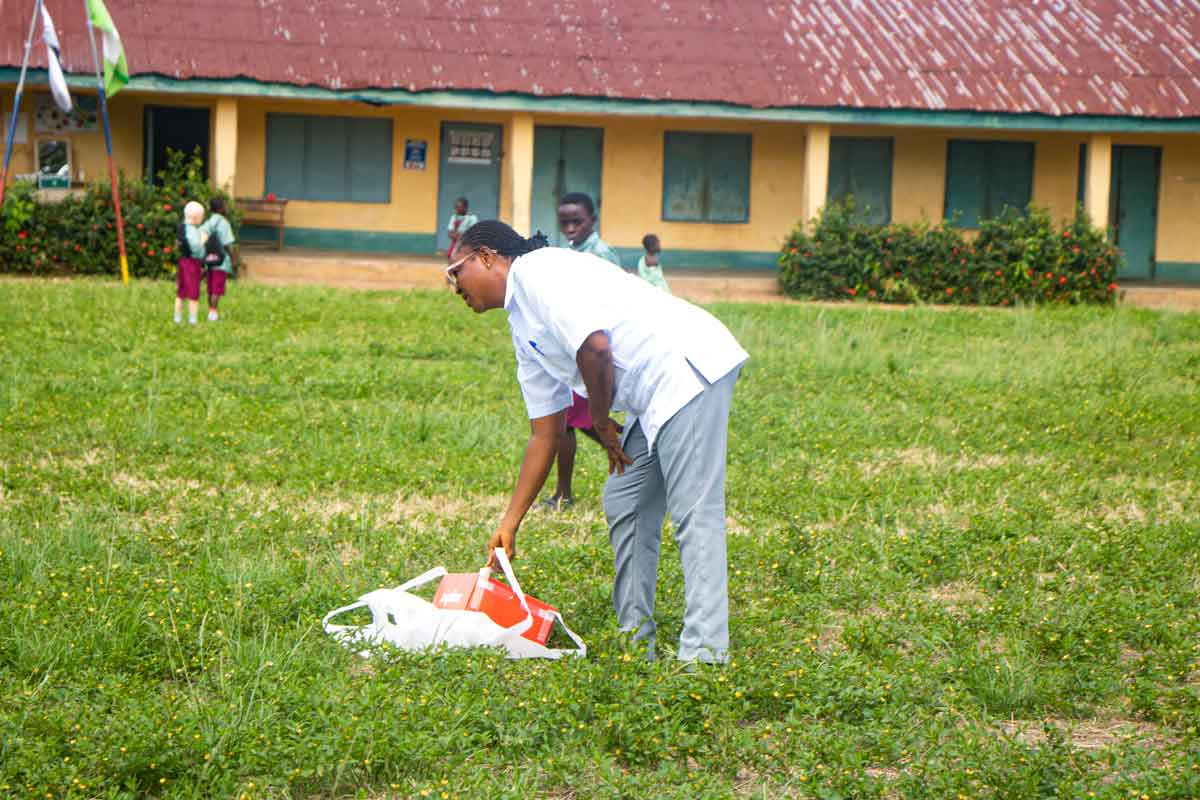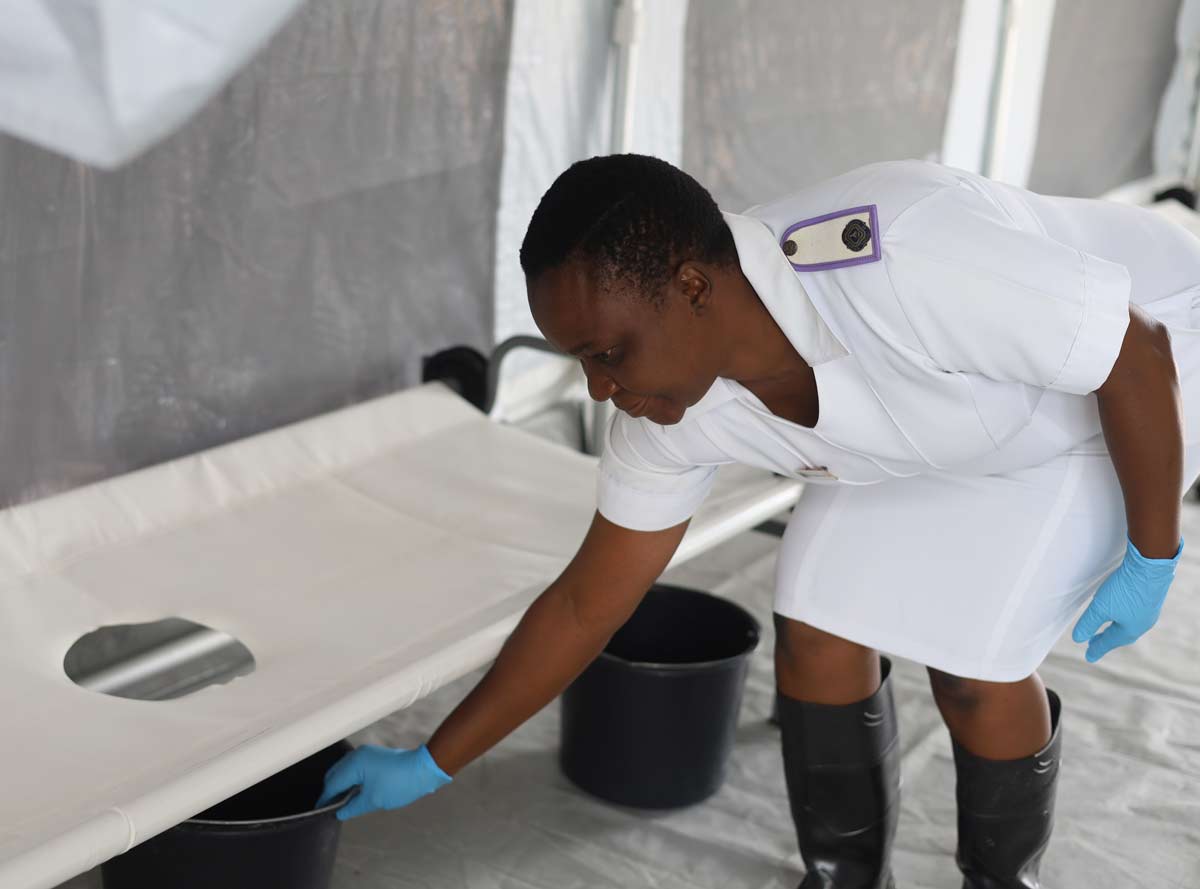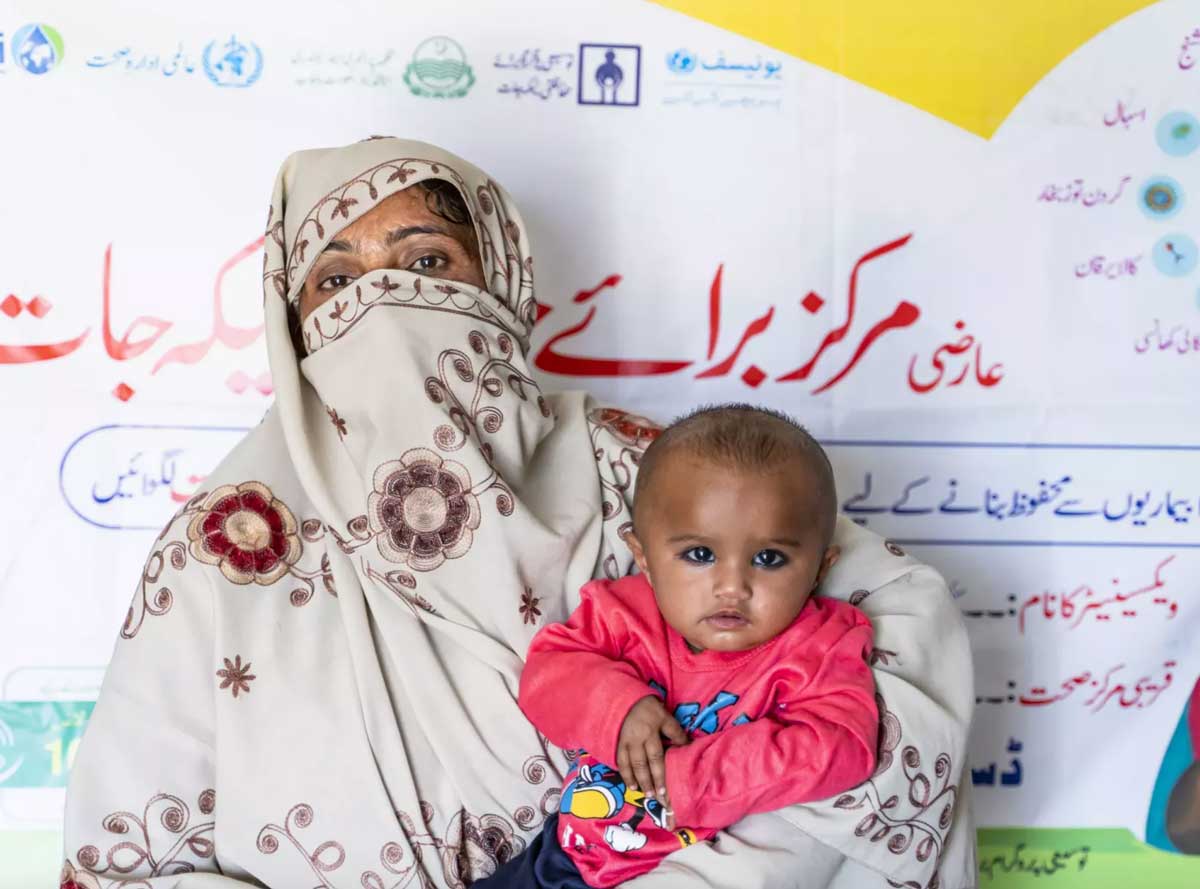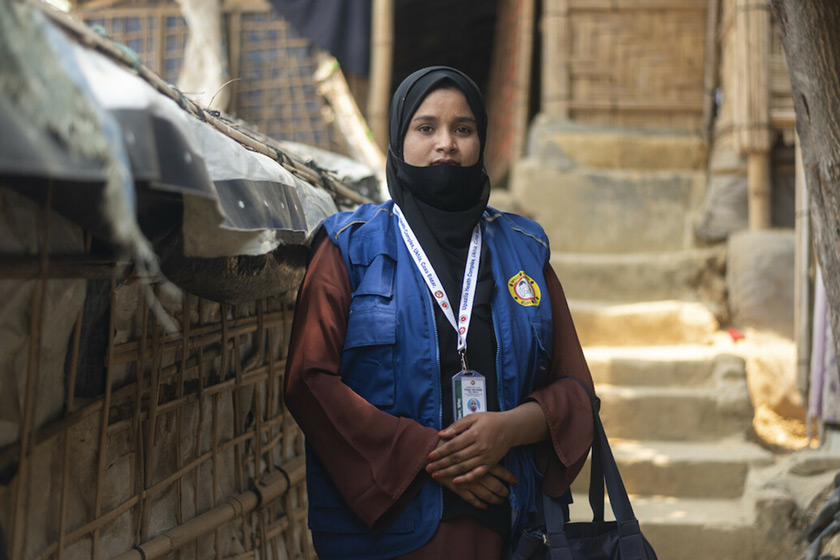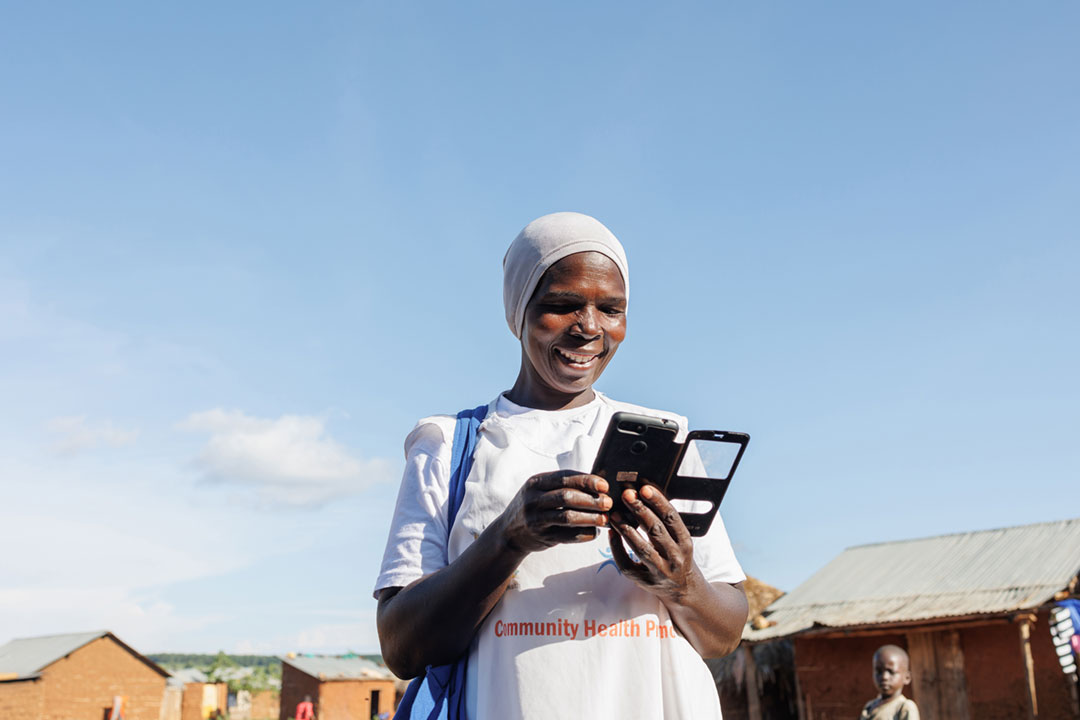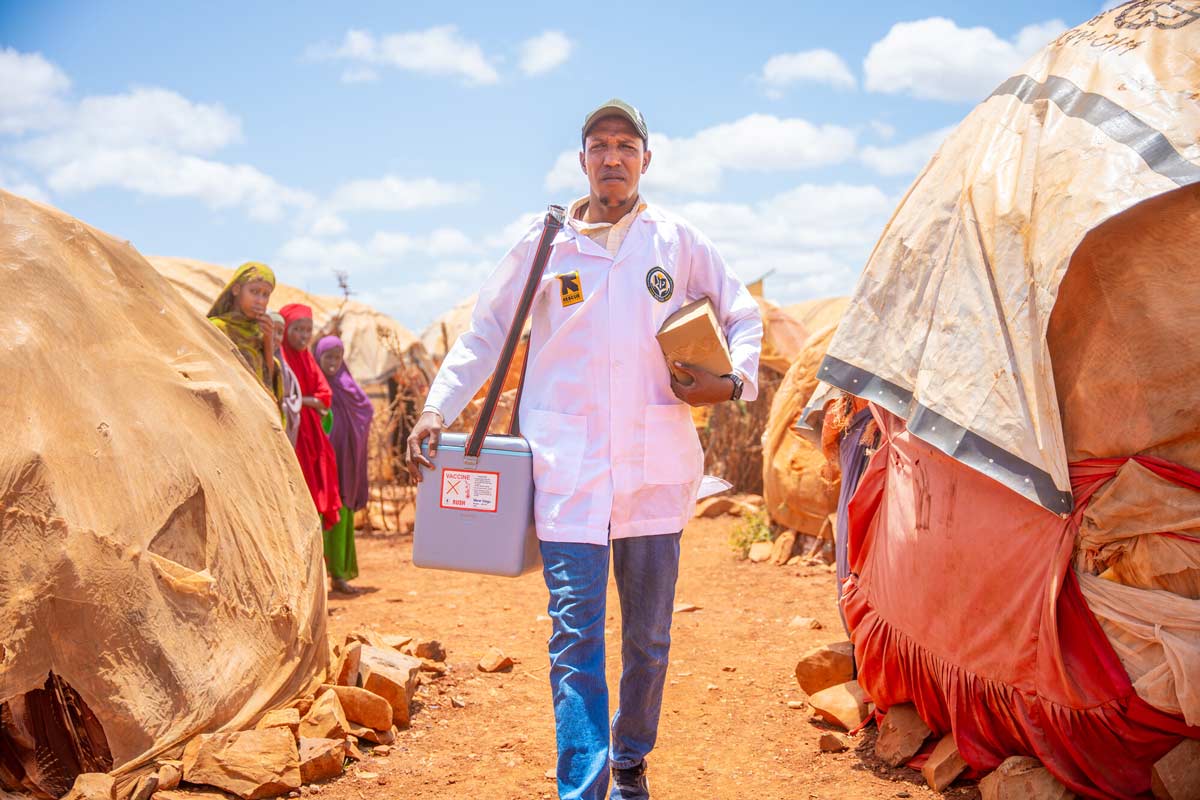Nigeria: big challenges, local solutions
With a population of more than 200 million and an annual birth cohort of over 8 million, delivering vaccination is a huge challenge in Nigeria.
- 28 June 2024
- 4 min read
- by Ian Jones
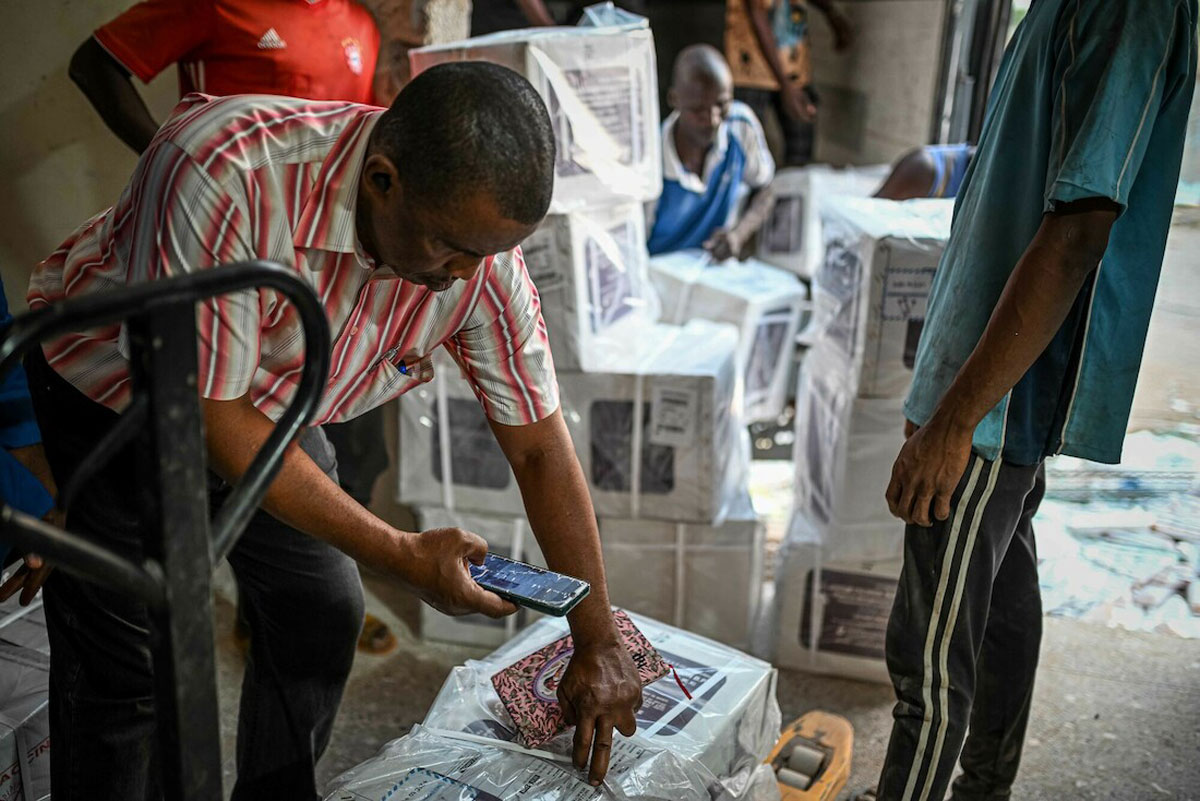
A new partnership between Nigeria’s National Primary Health Care Development Agency (NPHCDA), UNICEF and the Geneva Learning Foundation (TGLF) – the Nigeria Immunization Agenda 2030 (IA2030) Collaborative – aims to harness and share the experience and expertise of its health workers to solve its many immunisation challenges.
The sixth most populous country on earth, with a population growing by more than 5 million people a year, Nigeria faces an immense challenge in ensuring all infants are protected through vaccination. According to the standard indicator of vaccine coverage in infants – three doses of diphtheria, pertussis and tetanus-containing vaccine (DTP3) – it currently manages to reach 62% of them. In 2022, Nigeria was home to an estimated 2.3 million zero-dose children – more than any other country in the world.
It is not just population size that is a challenge. In terms of gross national income (GNI) per capita, it ranks 145th in the world and is categorised as a lower middle-income country. Many populations live in remote rural, informal urban settlements or other hard-to-reach settings. And it has been bedevilled by conflict, particularly in the north of the region.
Like most countries in Africa, it is also chronically short of health workers. However, those involved in immunisation in Nigeria have been enthusiastic contributors to peer learning activities organised by the Geneva Learning Foundation (TGLF), typically making up the largest contingent from a single country.
Have you read?
Now, thanks to a new partnership between the National Primary Health Care Development Agency (NPHCDA), UNICEF and TGLF, health workers from Nigeria have the chance to benefit from their own dedicated peer learning programme.
Within the framework of the Movement for Immunization Agenda 2030 (IA2030), through which health workers make a pledge to work towards global IA2030 goals and to support their peers, health workers can sign up for a free, intensive peer learning programme through which they can share advice, ideas and experience with each other, as well as learn from global experts.
When signing up to the programme, participants will identify a specific local challenge that they want to address. Supported by TGLF and their peers, they will undertake a root cause analysis to better understand the specific reasons for their local problem and develop an action plan to address it. Participants will share their findings and plans with their peers to gain input from others who have faced similar challenges, and will be able to share experiences and seek help at online events at which global experts will also be able to offer advice.
With the NPHCDA as a partner, the programme is rooted in the specific challenges facing Nigerian immunisation workers. The programme is being guided by the existing Movement for IA2030 network in Nigeria, while those who contribute to a set number of programme events will be invited to join a Leadership Circle that currently includes health workers from Nigeria who have already completed TGLF learning programmes.
As well as helping individual workers solve their local challenges, the programme aims to contribute to the development of health worker capacity within Nigeria.
The programme launches in mid-July 2024, and online activities will be held throughout July and August as participants plan their analyses and develop their plans.
As one participant at a preparatory event put it: “When it comes to routine immunisation, over the years, we’ve been going back and forth, back and forth and the challenges are still there.” Even so, progress has been made – and the new peer learning programme will enable successful ideas and approaches to be shared and adapted.
Pre-launch events have involved TGLF alumni from every state and over 80 districts known as Local Government Areas (LGAs) in Nigeria. They are keen to join the collaborative and have been encouraging others to sign up. Said one: “I will apply for it because it’s continuous learning, and what we have learned we apply in our routine work, and we see a positive impact towards reaching the zero-dose and other missed children, even in the conflict environment in our state. So, I will apply again and continue learning to keep pushing until we reach all the under-five children.”
In addition, a teacher of community health workers suggested participation would be ideal preparation for students: “My students are all interested, because before they graduate, they start going into the field to have practical experiences of everything that we teach them. My head of department, everyone is interested in enrolling the students, and hopefully they go ahead and follow the process to enrol and engage themselves in it.”
Learn more and apply to join the Nigeria Immunization Collaborative https://www.learning.foundation/nigeria
More from Ian Jones
Recommended for you



